[Maybe the term «pagan» is not so good to explain my idea and as I see the term «heathenism» is more correct in using; and it’s hard to translate the Russian word «язычество» saving his semantic connections. But translator chooses this word, so I hope you first of all understand my view and idea, and secondly we can make a terminological corrections. Also, my next notes in the text will be in square brackets. – Askr Svarte]
Identity – what is it? It’s the answer on the question «Who am I?» that a person asks themselves. Usually people give surface answers like: I’m a student; I’m young or I’m old; I’m the fan of rock-music or I’m a sportsman etc. At first look we see examples of an identity that are built on social role: a professional, an educational, age-related, subcultural. A human-being as a social person (a mask) is a crossing of who they think they are and who society thinks they are (a status, a role in society).
Deeper thinking about «Who am I?» question will lead us to more wide scale and fundamental identities: confessional (religious), gender based (a male or a female that also includes sexual identity), ethnic (a Russian, a German, a Greek, a Tuvinian, etc), civilian/national and racial. These are more general and complicated collective identities. The other part is ontology identity, where the answer on the question «Who am I?» Will be: «The human being, one of the homo sapiens «. From the point of view of biological taxonomy (all the people that ever lived, have died or live right now, will live and will die) specific identity.
Identity is the base for cooperation, creating a commune, social groups, for identifying self-belonging and orientation in society with help of wide set of social markers, signs, functions and relationships. Human is a summary of different identities, some of them are given to person (birthplace, ethnicity, gender and language), other identities may be changed by social mobility (horizontal and vertical: the place of living, a profession, a family, an education, a confession, a civil, a hobby, an age etc.). Identities are built in ah hierarchy.
In the base there are natural identities which are unchangeable givenness for human: ethnic, territorial (Lebensraum, life space or «place development» of people in organicistic school of F.Ratzel), in traditional societies religious identity is fundamental too. Above them are more dynamically artificial identities that we already told about earlier-social roles, functions, belonging to groups and subcultures. These identities change with time and sometimes very swiftly or vary horizontally in frames of one society. Also, society should do a work to support those identities. For example, in case of war the Government will activate patriotic discourse and civilian or national identity as a factor of mobilization and consolidation of society begins dominating and influencing on other small identities. The modern sociological approach to the question about identity is as follows in general and short exposition. So what is the place of paganism as a form of identity in that picture?
Obviously that paganism which is Germanic-Scandinavian Odinism or Asatru is related to confessional identity which could be changed because of human’s wish, compulsion or situation.
The structure of modern society is like this: a human as an individual is free to construct and choose identity and change their choice.
Secularity is a condition of identity as a set of self-identifications that are distributed on different sectors in society. In other words, the known phrase «Religion is a personal choice» is related to this. The situation comes out that in church we are believers, in offices we are professionals and on the weekends we are musicians or theatergoers. A society is parted on areas with obvious limits where individual space of religion ends and the other space begins: of subculture, professionalism, gender or religion of other person. Here, the paganism is a form that person chooses for realization of spiritual needs that is limited by a place, a time or social borders. The situation gets more complicated if choosen religion is among marginal or demonized in the society. In that case religious identity begins to be covered in negative connotations or be associated with radicalism, asociality, ill-being etc. Nowadays paganism is forced to be in space of marginalia, «illnesses» of society; identities «pagan» and «sectarian» are imposed as synonyms. These days not all religions are privileged. Only religions that accept secular status-quo and the supremacy of the individual’s rights and freedoms over themselves, limit their postulates and have minimal impact on other aspects of life. Earlier we designated confessional identity as fundamental and collective. It means that paganism as a religion should have a prevailing position in hierarchy of human’s identities (in their life, in society), influence all other area of life and define a hierarchy based on itself. It’s almost impossible to change most of identities because it will lead to total reconstruction of all other identities, language, culture and life. But there is no domination of pagan identity these days because so-called «paganism on weekends» is tolerable form of confessional identity and practice for most of pagans; this is how they try to adjust to modernity.
The modern society proclaims overall equality and freedom from the dictatorship of religion identities, they are counted as cultural fond and variations of norms within civil society. Human’s religious or ethnic belonging is not defining, a person can choose any religion, ignoring their ethnicity or ethnic fundament of the traditions themselves. The most radical form of liberation from most of identities is offered by Postmodern, which removes the most fundamental identities from point of view of Modern – biological sex pair (instead of male and female appears infinite spectrum of genders) and the ontological identity of a human (instead of human-being there can be a transhumant, clone, cyborg, dog-human or freak).
Here we should pay attention on our position in time. We started from sociological education program from position of modernity, Modern and finished on these days when the Postmodern stage is coming. This is our so-called chronological identity. We are extremely modern people and we live in the modern society that radically differs from traditional society where religion has dominated-this is what was given to us, the chronological identity can’t be changed. If we practice paganism from Modern or Postmodern it will always be the one of changing identities. You can be pagan on Monday, follow Shabbat and practice voodoo or theurgy between Wednesday and Friday. Even better-to create something extravagant, shizo-psychedelic and believe it on Tuesdays.
But the point of paganism (Tantras, Odinism, Hellenism etc.) will be covered and human will reject it like something «difficult», like something that interferes them to create and image, that requires changing thinking and behavior. For understanding what paganism is as identity we need to descry paganism not from modernity’s position but from within it. From the chronological point which will precede Modern and Postmodern and as much as possible.
The first thing we come across and that was totally given from the world of traditions is absolute and continuous sacredness of the cosmos. Tradition is in the center of society, tradition creates society, its structure, culture, language; tradition creates human and their anthropology, tradition is the whole society, the whole universe. Tradition is overall and only identity which from all other sub-identities radiate and do not leave its limits, but express its different facets. The explanation of all phenomena of the world comes from the myth. Every nation [not a modern political nation as civilian construct, bur folk or ethnos first] has its own tradition, mythology. Social system is a myth that embodied for people empirically as something accessible and visual. Let us see how in paganism exist things like: ethnicity, female or male gender, profession (we will talk about craft here), territorial belonging.
Religious and ethnic identities in paganism are closely related. In the old Russian language there is a word «ıảзы́цы» that means «nations [=folks, ethnics]» and later it started meaning paganism as it is. The etymology of the word reflects the relation «nation-and-faith». Ethnic identity is explained trough the faith in common Gods.
Later in Europe a Latin «paganus» semantically relates in it religious identity (paganorum = pagan), territorial (pagus = village) and class because the villagers are peasants. Something similar happens to Icelandic word «heiðr» (wasteland, prairie) that is related to English «hæþen» the modern «heathen» comes from and means pagan. Even in known formula «Russian means orthodox» [or «All Arabians are muslims»] speaks pagan spirit ethnoreligious identity and dual faith.
The meaning of sex in society also comes from myth. A man and a woman are reflections of couple of divine spouses, Often, the Higher God and his wife or the most archaic couple of Father-Sky and Mother-Earth and people are their children. The Relationship between man and woman are ruled by God Eros (Freyr, Kama), that connects two halves in ecstatic coition [see «Symposium» by Plato].
Profession or craft appears in society as a gift of Gods which teach human hunting (Demetra), blacksmithing (Hephaestus, Svarog), fishing (Njörðr), agriculture (Demetria) cattle breeding (Veles). Moreover, as Georges Dumézil showed us, the whole structure of society is a reflection of divine triad: Supreme God – priesthood, martial God – wars, royalty, Gods of agriculture and crafts – tillers, workers.
In traditional society there is no blank space. Every place in the world is taken by someone or devoted to any of Gods or daemons, or there live miracle and scary creatures: goblins, boggarts, dwarfs etc. In the holy grove appears God which is a friend of a God of river, where mermaids live. We could say that human always comes from one’s home to other’s home when they walk around the landscapes. So it goes that human is a guest of creatures that need to be agreed with. Talking about a place where people live and develop, it reflects in myths, folklore, poetry, art and people’s mindset (F.Ratzel). So territorial identity is related to myth too.
We can talk about sacral hermeneutics for a long time, also looking at many aspects of identity: age and mythological semantic of children, old people; initiation as identity of devoted to Gods and mysteries (M. Eliade wrote a lot about it); the representation about worthy behavior and accomplishments of worthy roles in society (Dharma, Wyrd).
The way identity lines up in era of traditional (premodern), modern and postmodern society could be described with the following theses.
In ancient society there were one common identity – the tradition itself, the most sacral. New sub-identities appear from it (we can talk about them only contingently because these are not separate identities but the same tradition in its different aspects.)
In modern society there is a hierarchy of identities, its fundament is a representation of individual – just a «human», summary of which is a historical humanity or population of people.
Human has a lot of social identities which have limited influence on each other. A person can change identities except for the basic ones that have limited (by human rights, equality and liberty) influence too.
In Postmodern society people don’t have fundamental or central identity but have continuous dynamic set of identities like kaleidoscope or mosaic that recompile’s itself in very radical combinations. No identity can dominate but all of them mix together.
Obviously that between the real paganism, the place that modernity gave it and how postmodernity offers to change it is a huge space of serious differences. The modern paganism exists in that space in Europe and Russia, the same difference touches traditions in India, Africa, Latin America and Asia.
The situation where identity «I am pagan» faces a lot of barriers in that difference. This way, modern pagans are in the situation that needs them to solve the problem about being a pagan in modern world. In other words: what does pagan’s identity means in the XXI century for pagans themselves? How do they see their nature now?
There is a lot of methods of solving this problem but we decided to get into it through the concept of identity. As a particular case, we will consider that argument between universalists and ethnocentrists in west paganism. Their example will let us see how problems are being solved in practice. Also, it will help us to orientate in the space of pagan organizations and ideologies of modernity, to find a foothold for right problem solving.
Even though we will be talking about experience of pagans in the USA and Europe, we can find similar examples in the post-Soviet space, in Russia and even among pagans of our small nations. Furthermore, in recent years, the third position is trying to express itself – tribalism. It is on its early development stage but we will try to point out their position too.
In the basement of dispute between universalists and folkish there is a question about meaning of ethnic roots of people that want to be a supporter of Germanic-Scandinavian tradition (Odinism/Asatru).
A position of universalists is like that: Asatru is universal (where the name of position is from) religion. Any human, regardless of race and ethnicity, can be adherent of this religion and call themselves asatruar, revere German Gods and call themselves pagan of German tradition.
A position of folkish is different: only people that are related to Germanic-Scandinavian and Anglo-Saxon nations can be an adherents of Germanic-Scandinavian tradition.
Universalists hold position of modernity and say strong «yes» to Modern. For them tradition is easy to fit in Procrustean bed of secularity and to cut off all that seems irrational and inconvenient for them.
Universalists say «Yes» to progress, they are ready to adapt pagan tradition for modernity needs. In this way we get distinct polarity of positions. From the point of view of premodern, tradition is everything, it is total and perfect, it doesn’t need anything and overfilled with everything that exists. But universalists as it should be for progressives say: «No, your tradition is too archaic and obscurantist, we will modernize it». Surprisingly, but they are almost the same in it with theology of Protestantism that were developed by P.Ricoeur and R.Bultmann. According to their approach, Christianity should be cleaned out of everything mythical, irrational and mysterious; tradition should be consciously demythologize and leave just something that is rational and materially true. Dry rational prosperity that Bultmann called kerygma, constitutes about 5% of all heritage in Christianity, and mythological ballast called structure, holds nearly 95% of everything else. Absolutely similar operation of cleaning paganism out of «fallacies» is offered by universalists. From the point of view of identities, they say that ethnic factor doesn’t matter, the chain «folk-plus-faith» should be destroyed. Tradition is not total identity, you can be pagan and anyone else at the same time and your religious identity shouldn’t dictate and require anything from human and society. Above tradition there is something else – human rights, freedom and equality, scientific knowledge, minority’s rights, secularity, in accordance with which, tradition itself needs to be adapted to modernity.
Paganism seems defective for them (the question left: why does progressive modern individual need any religious identity?).
In political spectrum universalists have position of liberalism and new left, anti-fascism, Cultural Marxism and multiculturalism. More honest «pagans» of their number actively participate in left-liberal discourse of Postmodern. In their surrounding we can see paganism which actively accepts gay marriage, transvestites, gender deviations (transgenders, gender-fluids, eco-sexuals etc.), feminism, SJW-discourse etc. In tradition that has 95% from its structure thrown out and other 5% left as one of many changing identities, any deviations become possible. A position of universalists is similar to policemen mainstream in the USA and Europe and also resonates with recent political crisis on the West. So, all universalistic organizations supported anti-Trump campaign, have accomplished cursing rituals on president of US and has behavior that matches their ideals.
See video from RED ICE RADIO
Among pagan organizations and streams the most popular universalists are Wicca in all variations; organization The Troth; the oldest community Asatru in Iceland and communities Forn Seðr in Denmark and Sweden are affected by universalism; many small groups like Vikings/Asatru Against Racism and others. Exactly these pseudo-pagan groups and direction give reasons to Christian apologists and propaganda to blame paganism in Postmodernism and leftism.
From the other side, a position of ethnocentric [here we use this word as wide umbrella-term for several close points] clearly gravitates towards anti-modernism and correct respectful attitude to paganism. Folkish started from saying «roots are important» (a formula of Stephen A. McNallen «Asatru it’s about roots»). Later militarism, anti-liberalism and anti-modernism added. Folkish say: «We don’t need transgenders, we don’t need feminists, – we need traditional family, land, weapons, our Gods, nature and culture». Tradition – they say – is different in every nation, let every ethnos believe in their own Gods, we respect that and need them to respect us.
Folkish in USA implicitly approached even to denying their identity as «Americans» [I really met people with this point of view]. They were trying to justify their homeland in Europe, reinforce connection with continent historically, culturally, religiously, politically and organizationally. Important criteria for accepting in tradition are genealogy, uprising to Germanic-Scandinavian (wider: also to Anglo-Saxon) nations; knowledge of Germanic languages – native languages of traditions; knowledge of history and culture; pilgrimage to the historical areas of Tradition – Germany, Scandinavia, Island. In Russian-speaking space these theses are consolidated in documents the «Fundamentals of dogmas of Odinism» [www.odinism.ru, 2018].
In political spectrum folkish actively sympathize to the New Right of Alain de Benoist, traditionalism of Julius Evola, folkism/nationalism, ideas of Pan-European identity and originality, anti-migration policy.
Perhaps, the most popular and the biggest organization of folkish in the West is «Asatru Folk Assembly». A hatred of left-liberal flank to inflexible position of AFA not too long ago leaded to «Declaration 127» – a protestation of many organizations against «racism and homophobia in paganism» and Assembly particularly; the most of those who signed it were virtual communities, which is typical for Postmodern.
Positions of folkish paganism are quite strong in post-Soviet space and Russia; they persist in traditions of Asia too.
But since folkish position goes against liberal hegemony of globalism, it is always under the media, political and police pressure that makes them defense themselves from contrived accusations.
Finally, third position is tribalism, from the word tribe. Tribalists can be considered as a small form of position of folkish in the mode of defensive modernization. In other words, universals and folkish think globally: both of them want to make their own paradigm for a whole paganism. Left-liberal Postmodern and mixing everyone with everyone’s or ethnic-conservative traditionalism and ethnic identity for every nation, saving of their originality and cultures. In the last case, a position of folkish with traditionalism can be a platform for alliance of different nations in defense of their traditions and cultures from its destruction by West hegemony.
Tribalists, conversely, care about discipline in their separate clan and their separate land or town where they live in; tribalism is locality. They admit that not everyone can come in tradition and that there should be a list of requirements for adherent. Among these requirements there could be ethnic factor, in case its missing can be compensated by other qualities or recommendations of members from within tribe. List of requirements and also specificity of cults and relationship with external world vary from clan to clan. Someone is trying to mimicry and socially acceptable and others, conversely, go away from megapolises and prefer to live on farms and practice craft, hunting and extremely possible traditional lifestyle without influence of modernity. Probably, we know nothing about radical tribalists – they silently migrated from civilization to wild forests and their inaccessible «Zomia». From popular organizations that are close to tribalism we can point out NAM of Troy Southgate and pagan admirers of philosophy of Kaarlo Pentti Linkola. In Russia, with salvo and strongly marked nationalism, we could refer Dobroslav [A. Dobrovolsky, Доброслав] to that position.
Resume:
– Pagan tradition is a radical identity in the etymological sense of the word: from the Latin «radix» – the root. Paganism is the root of everything, the center from which all identities come, like a tree that grows out of seed.
– Modernity posits a choice: the ossification of tradition in favor of its adaptation or the radical «No» to modernity, the total «Yes» to the sacred.
– Man is not the sum of identities (Modern) and not a kaleidoscope of identities (Postmodern), but the bearer of the Divine nature in himself is the creation of the Gods, their descendant; God as a radical human identity.
– The chronological identity of the pagan should not lie in modern times, but this identity cannot be in the past either, because modern pagans do not belong to the past. The chronological identity of the heathen must be rooted in Eternity over time; in Being. Tradition needs to be thought not historically, not linearly, but vertically and existentially.
– Of course, all this is extremely difficult for modern neopagans. The universalist choice to «appear» instead of «being» is objectively simpler and more attractive. But Pagan Traditionalism should not seduce, attract, fascinate or be simply understood. Pagan Traditionalism must reveal the Truth.
Askr Svarte
Bibliography
- Askr Svarte (Нечкасов Е. А.) «Polemos: Языческий традиционализм» в двух томах, 2016.
- Askr Svarte «Проблемы языческого традиционализма», 2013.
- Askr Svarte «Полемика язычества и христианства: вопрос боговоплощения», 2017.
- Askr Svarte «Очерк о важности мифа», 2017.
- Бенуа Ален де «Как можно быть язычником», 2013.
- Бенуа Ален де «Традиция и консервативная мысль», 2017.
- Дюмезиль Жорж «Верховные боги индоевропейцев», 1986.
- Эвола Юлиус «Люди и руины», 2007.
- Элиаде Мирча «Священное и мирское» 1994.
- Юнгер Ф. Г. «Греческие мифы», 2006.
- Коллин Клири «Взывая к Богам», 2017.
- Коллин Клири «Что такое руна?», 2018.
- «Поколение идентичности», 2018.
- «Идентичность: общество, политика, культура», под ред. И. С. Семененко, 2017.
- McNallen Stephen A. «Asatru. The Native European Spirituality», 2015.












